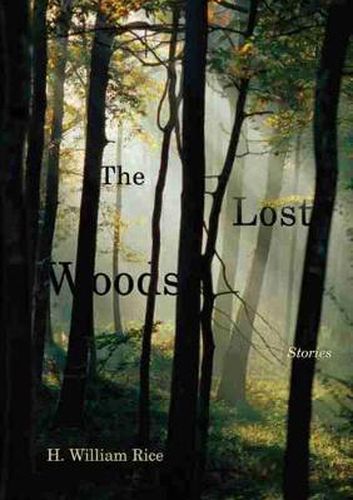Readings Newsletter
Become a Readings Member to make your shopping experience even easier.
Sign in or sign up for free!
You’re not far away from qualifying for FREE standard shipping within Australia
You’ve qualified for FREE standard shipping within Australia
The cart is loading…






The Lost Woods is a collection of fifteen short stories, most of them set in and around the fictional small town of Sledge, South Carolina. The events narrated in the stories begin in the 1930s and continue to the present day. The stories aren’t accounts of hunting methods or legends of trophy kills–they are serious stories about hunting that are similar in style to William Faulkner’s Go Down, Moses. The collection traces the evolution of two families–the Whites and the Chapmans–as well as the changes in hunting and land use of the past eighty years.
Some of these stories are narrated in third person; others are told by a wide range of characters, from grown men and women to children, but only from one perspective–that of the hunter. As they walk the woods in search of turkeys, deer, or raccoons, these characters seek something more than food. They seek a lost connection to some part of themselves. The title
the lost woods
is adapted from Cherokee myths and stories wherein people must return again and again to the woods to find animals that were lost. Thereby, we find not only food, but who we are.
Through these stories Rice reminds us that hunting is inextricably entwined with identity. As one of the oldest rituals that we as a species know, it reflects both our nobility and our depravity. Through it we return again and again to find the lost woods inside ourselves.
$9.00 standard shipping within Australia
FREE standard shipping within Australia for orders over $100.00
Express & International shipping calculated at checkout
The Lost Woods is a collection of fifteen short stories, most of them set in and around the fictional small town of Sledge, South Carolina. The events narrated in the stories begin in the 1930s and continue to the present day. The stories aren’t accounts of hunting methods or legends of trophy kills–they are serious stories about hunting that are similar in style to William Faulkner’s Go Down, Moses. The collection traces the evolution of two families–the Whites and the Chapmans–as well as the changes in hunting and land use of the past eighty years.
Some of these stories are narrated in third person; others are told by a wide range of characters, from grown men and women to children, but only from one perspective–that of the hunter. As they walk the woods in search of turkeys, deer, or raccoons, these characters seek something more than food. They seek a lost connection to some part of themselves. The title
the lost woods
is adapted from Cherokee myths and stories wherein people must return again and again to the woods to find animals that were lost. Thereby, we find not only food, but who we are.
Through these stories Rice reminds us that hunting is inextricably entwined with identity. As one of the oldest rituals that we as a species know, it reflects both our nobility and our depravity. Through it we return again and again to find the lost woods inside ourselves.